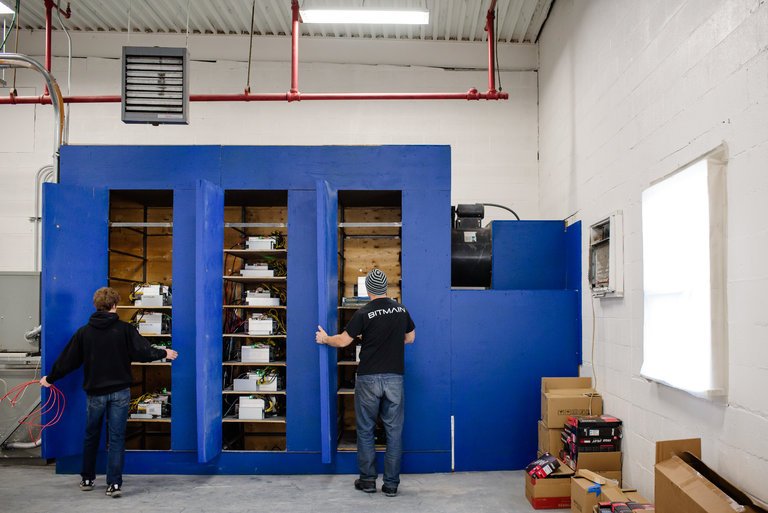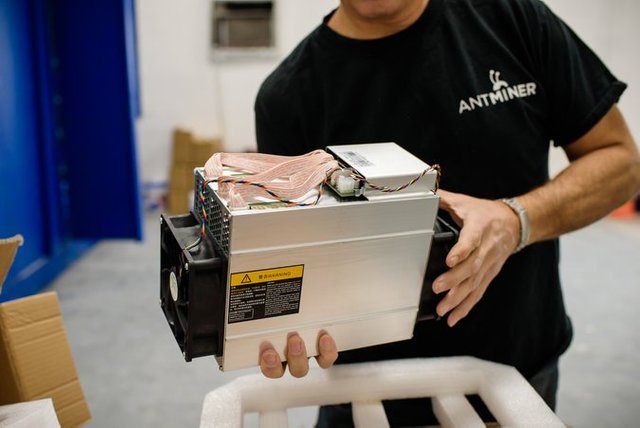Is Bitcoin a Waste of Electricity, or Something Worse?
Economy
Is Bitcoin a Waste of Electricity, or Something Worse?
By BINYAMIN APPELBAUM FEB. 28, 2018

Photo
Tom Pillsworth, right, whose company operates and maintains Bitcoin machines located at a former paper warehouse in Plattsburgh, N.Y. Credit Jacob Hannah for The New York Times
WASHINGTON — A manufacturing start-up recently announced plans to move into a shuttered aluminum factory in upstate New York, taking advantage of abundant cheap electricity from the St. Lawrence River.
Instead of smelting aluminum, however, the company plans to turn that power into Bitcoins.
Money is supposed to be a means of buying things. Now, the nation’s hottest investment is buying money. And the investment rush is raising questions about whether one reason for the slow pace of economic growth in recent years is that the nation is busy distracting itself. While Bitcoin mining may not be labor intensive, it diverts time, energy and capital from other, more productive activities that economists say could fuel faster growth.
“It appears that much of our evolving digital infrastructure is devoted to activities, like the proliferation of cybercoins, that are worse than frivolous,” said James McAndrews, the former head of research at the Federal Reserve Bank of New York.
By a wide range of measures, America has a productivity problem. The economy is growing slowly, and almost 20 percent of adults in their prime working years are neither working nor trying to find work. Americans who do have jobs are less likely to start their own companies. Even the most basic kind of production is in decline. Americans are having less sex and making fewer babies.
Photo

Tom Pillsworth sets up equipment at the Bitcoin mining facility in Plattsburgh, N.Y. Credit Jacob Hannah for The New York Times
Some economists see evidence that people are playing video games instead of going to work, logging on instead of getting it on, and plowing a growing share of their time, capital and natural resources into virtual products like social media, games and the latest fad: virtual currencies.
Bitcoin, the largest virtual currency, is a particularly voracious consumer of resources because new Bitcoins are distributed in a kind of lottery where each ticket is purchased with electricity.
Bitcoin miners compete for the coins by submitting answers to difficult math problems. Instead of solving the problems, miners use computers to submit a flood of guesses. This can be lucrative: Each Bitcoin is currently valued at about $10,550.
Believers insist it is a worthwhile endeavor. They describe Bitcoin as a superior currency that will eventually come into wide use, and they predict even broader applications for blockchains, the digital bookkeeping method used to record ownership of Bitcoins and to verify transactions.
Currently, the average price of one Bitcoin is about $11,292, according to Blockchain.info, a news and data site.
But Bitcoin remains so hard to use that a major Bitcoin conference in January had to stop accepting Bitcoin. It is, in practice, a speculative investment, like gold. And Tyler Cowen, an economist at George Mason University, said mining gold was a better use of resources, because even if it lost value, it could be used to fill teeth.
“Once the Bitcoin power is burned, it is never coming back,” he said.
Colin L. Read, the mayor of Plattsburgh, N.Y., also sees it as a public nuisance. The city was guaranteed a fixed supply of cheap electricity as part of the construction of power-generating dams on the St. Lawrence in the 1950s. Bitcoin mining companies are plugging into that power supply like a swarm of hungry mosquitoes.
Mr. Read said that Bitcoin mining now consumes about 10 percent of the city’s power, and that is forcing Plattsburgh to buy a growing amount of extra electricity on the open market, at rates up to 100 times higher than its base cost.
Mr. Read, who is also an economics professor, said he would rather sell the city’s supply of cheap power to companies employing large numbers of people. Mold-Rite Plastics, which makes bottle caps, also uses about 10 percent of the city’s power, but it employs about 200 people. The mining companies? “They hire a security guard,” he said. “And a guy who comes when something breaks.”

Source
NewYorkTimes